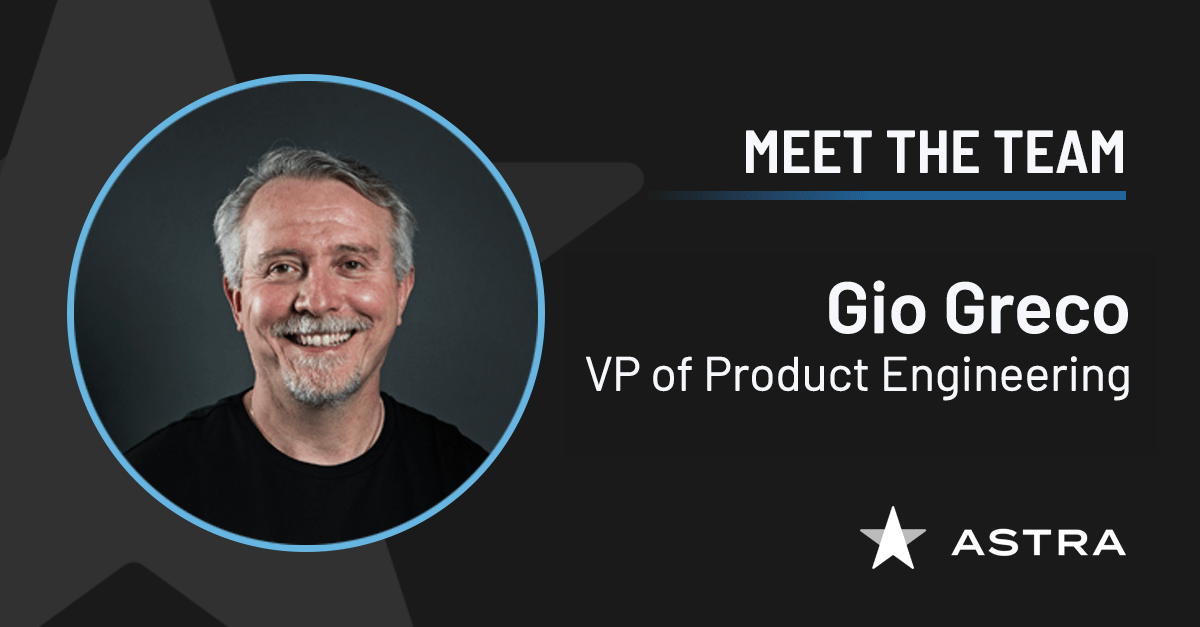
In his role as Vice President of Vehicle Engineering, Gio oversees Astra’s product engineering organization, designing, testing and certifying our rockets. Gio brings more than a decade of experience with spacecraft in addition to automotive and maritime engineering.
What challenges are you looking forward to tackling at Astra?
The launch cadence that we’re trying to achieve at Astra is ambitious and will require a lot of refinement and iteration. Our goal is to launch a rocket every day by 2025. No one has ever come close to doing that before, and that makes it an inherently exciting challenge. In order to manufacture and launch rockets at that rate, you need to design high-rate production and operation into the architecture, alongside the high-level requirements. You have to take into account every element of design, manufacturing, and testing to ensure you are consistently producing rockets that are ready to launch and takes a lot of knowledge and creativity to make that work.
What drew you to Astra?
Lowering the cost of getting to space has been a goal of mine for a long time, and it’s something I’ve been working toward for a good part of my career. A space economy which lowers barriers for new customers and provides more access, can create the highway to space that will make new innovations and ambitions possible. Astra’s determination to broaden access to space by lowering costs is an inspiring ambition, and when we achieve that, it’s going to change the way people think about and interact with space.
Is building a rocket like building a race car?
I’ve designed both during my career, and they present different challenges – but there are more similarities than you might expect. With a race car, you’re not as concerned with affordability and mass production, but you are trying to optimize performance in the same way that you would with a rocket. You have to use different kinds of analytical tools to measure performance and refine the design, and those tools have to become integrated into the design and manufacturing process. I hope to use my experience with that process to help Astra produce rockets that are reliable, affordable, and also high-performance.
What benefits do you expect from humanity’s wider access to space?
There are all sorts of tangible benefits we can predict now – things like weather observation, better connectivity, and a greater understanding of how our actions impact our environment.
On top of that, I think a lot of the value of wider access to space will come from the developments we can’t foresee. It’s like we’re in the early days of the Internet – we can’t really tell where this is all going to take us. These developments are going to make a lot of new products viable and will enable a host of new research. There are incredible projects that I’ve seen at different universities, designed by students, that could change the world if only they could afford to put them in space. We will only know the extent of their potential when we make space readily accessible.
Interested in learning more? We’re hiring.